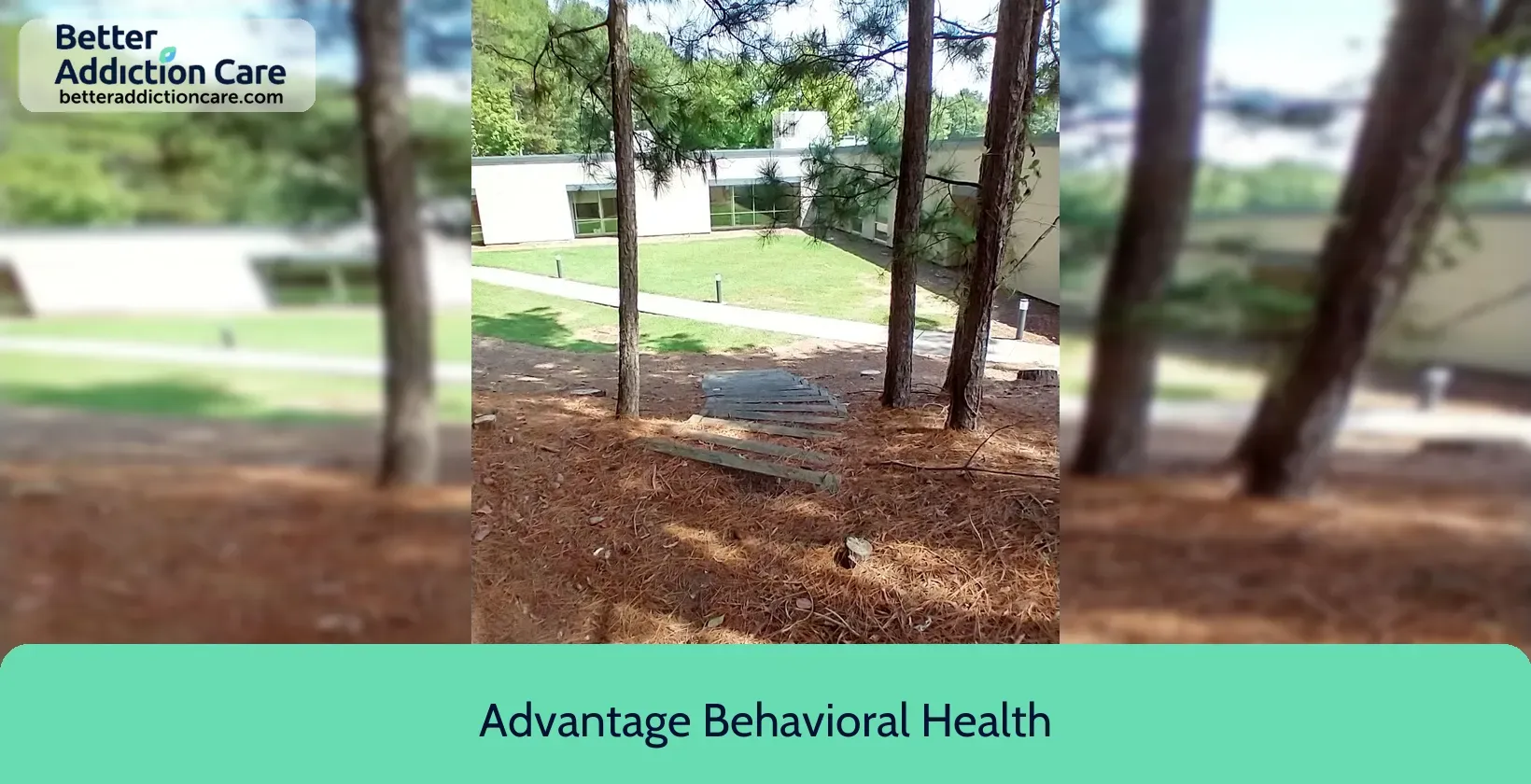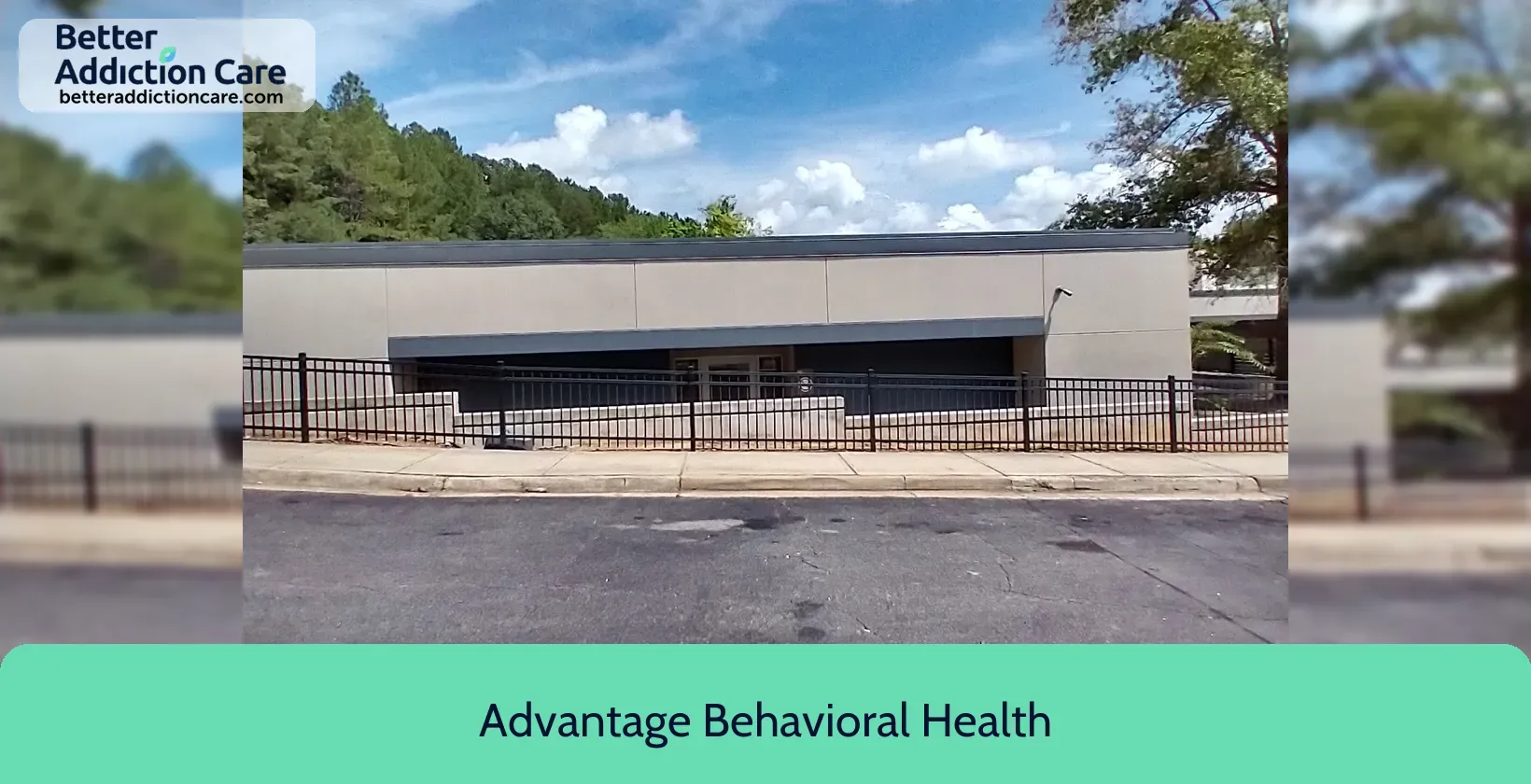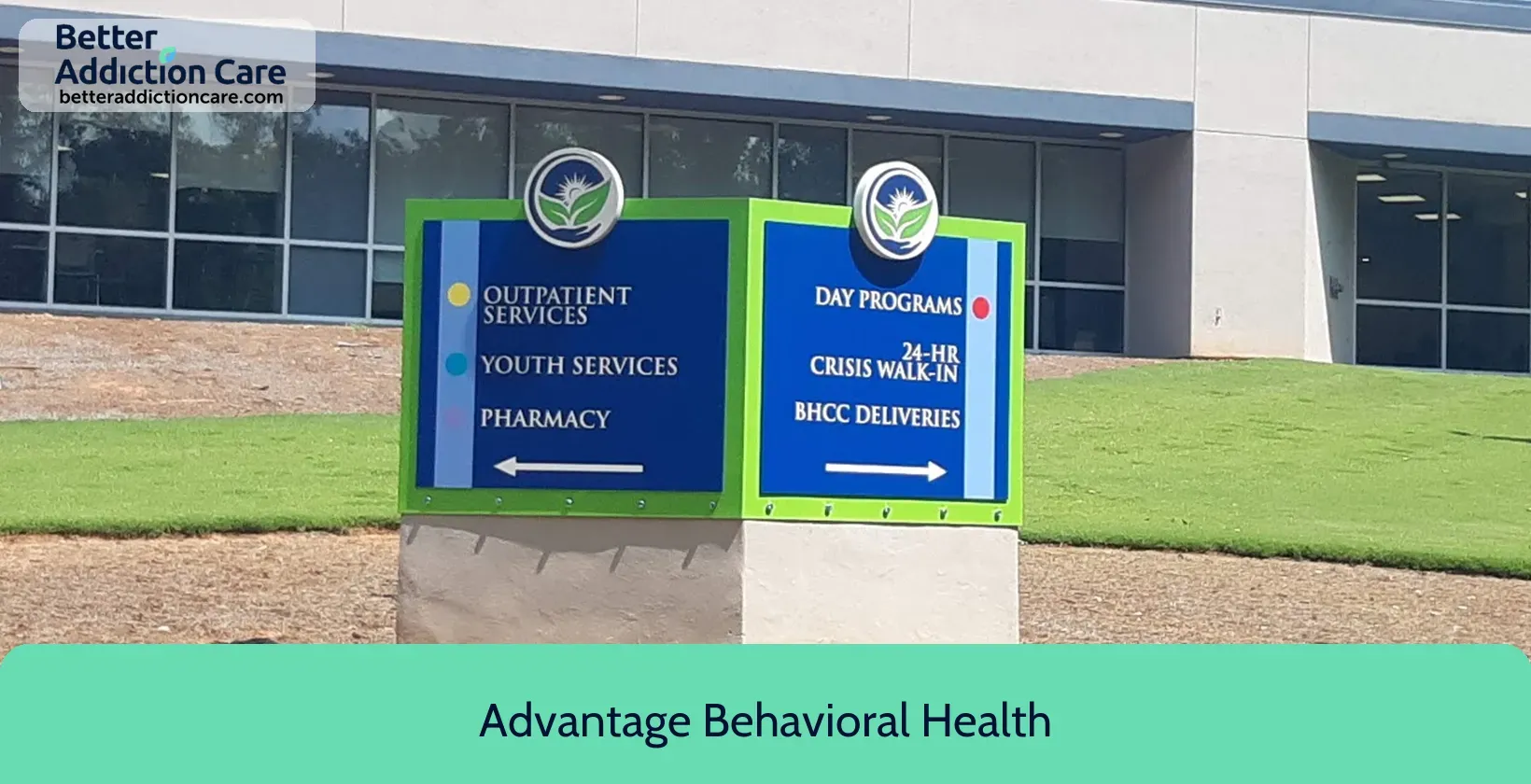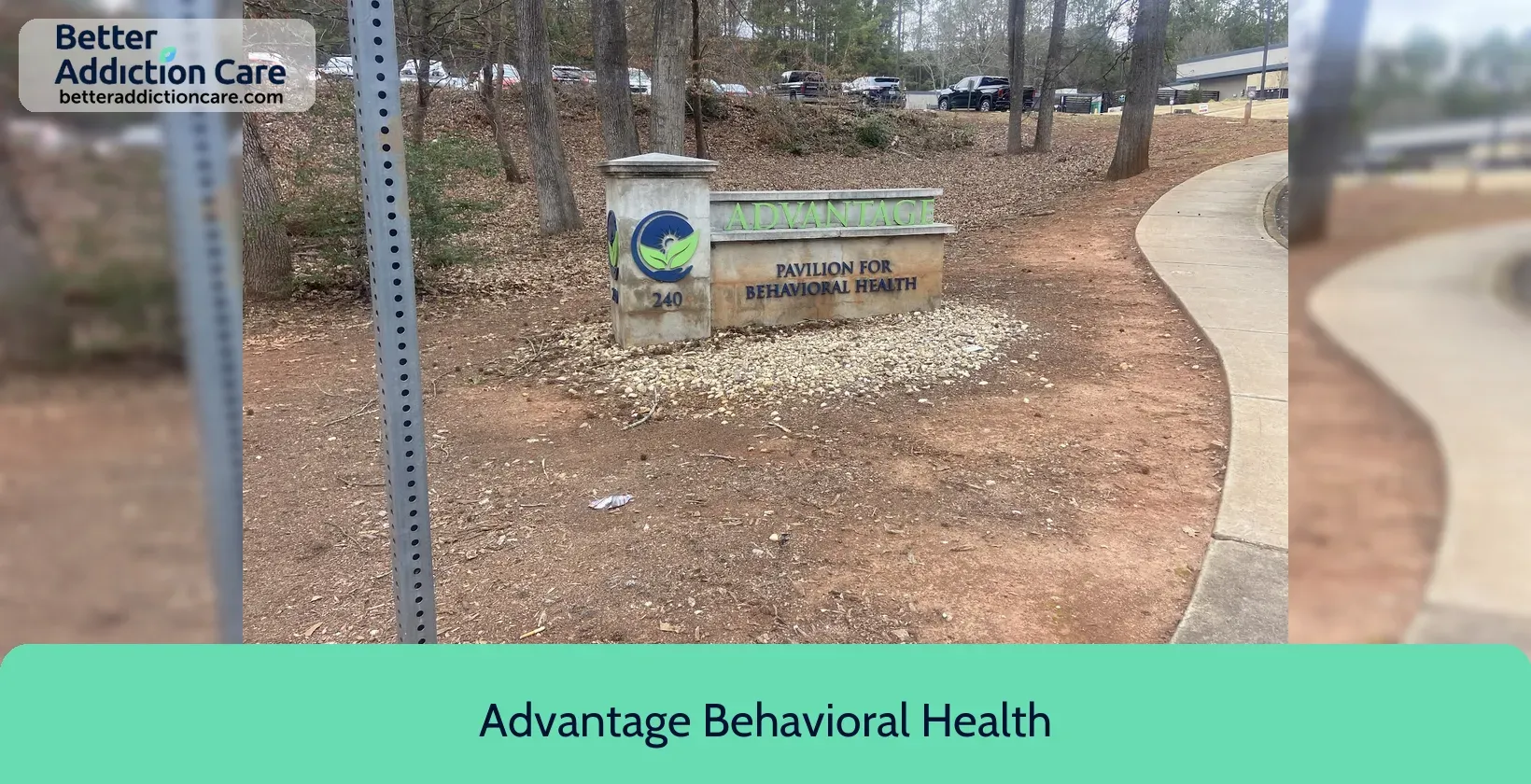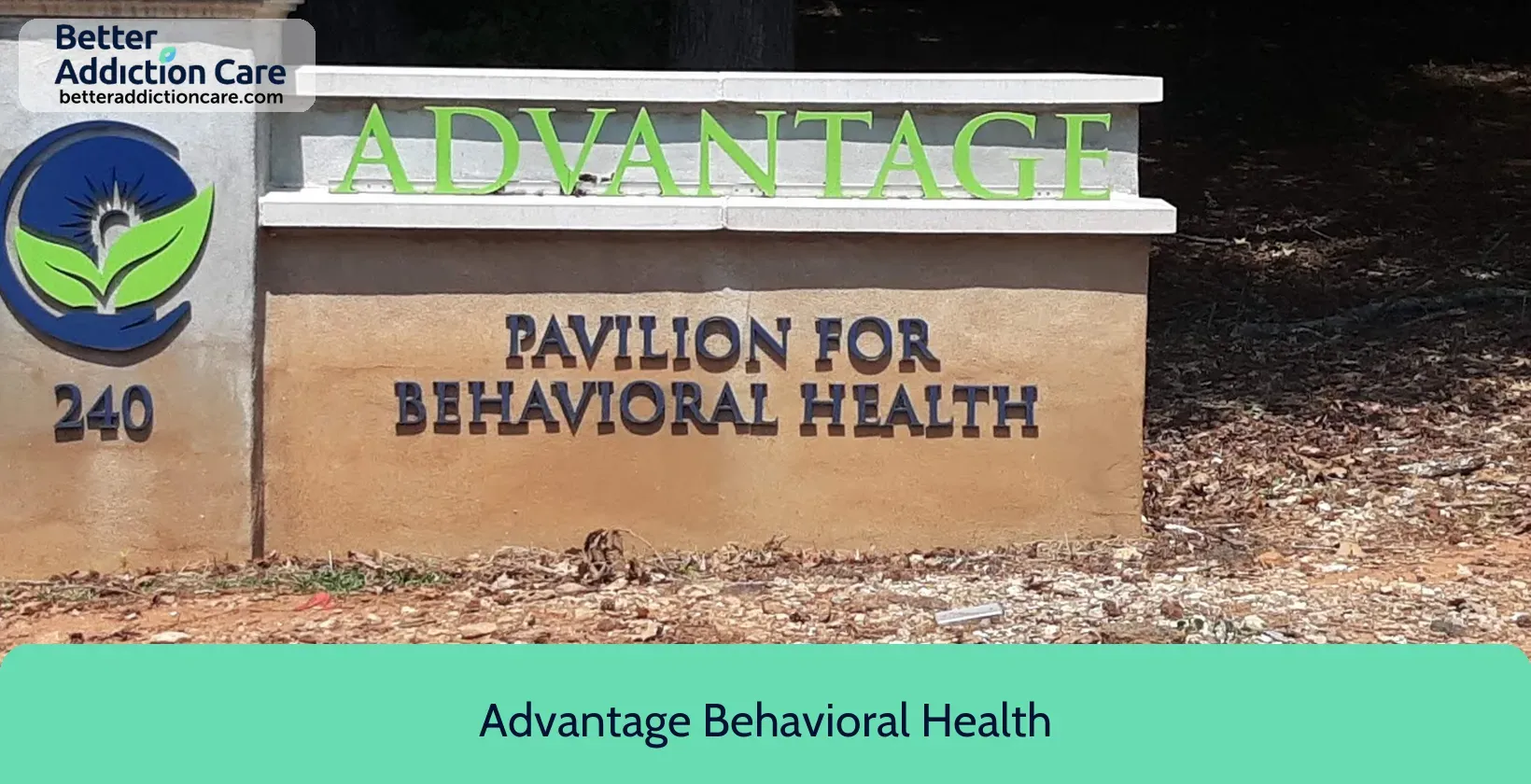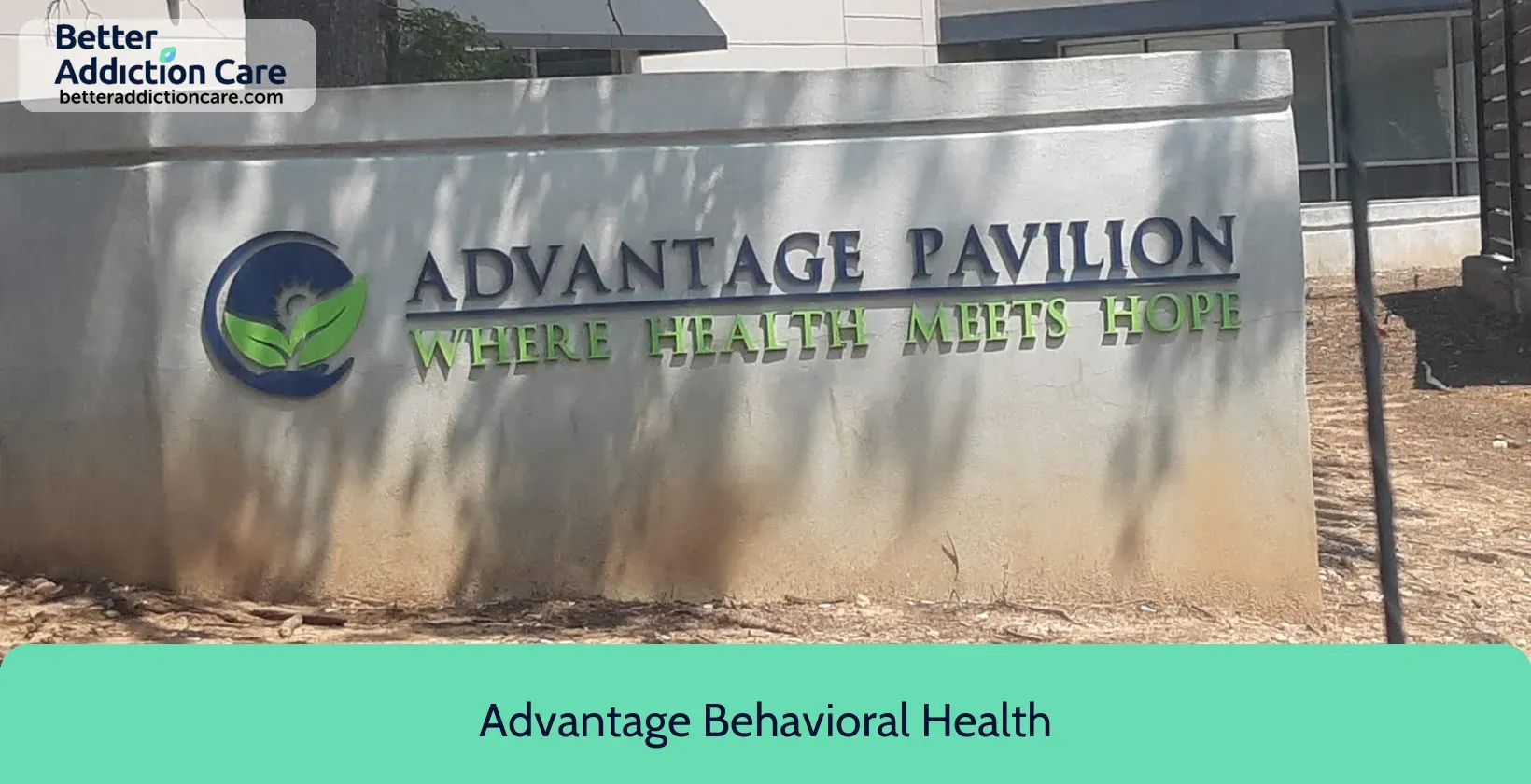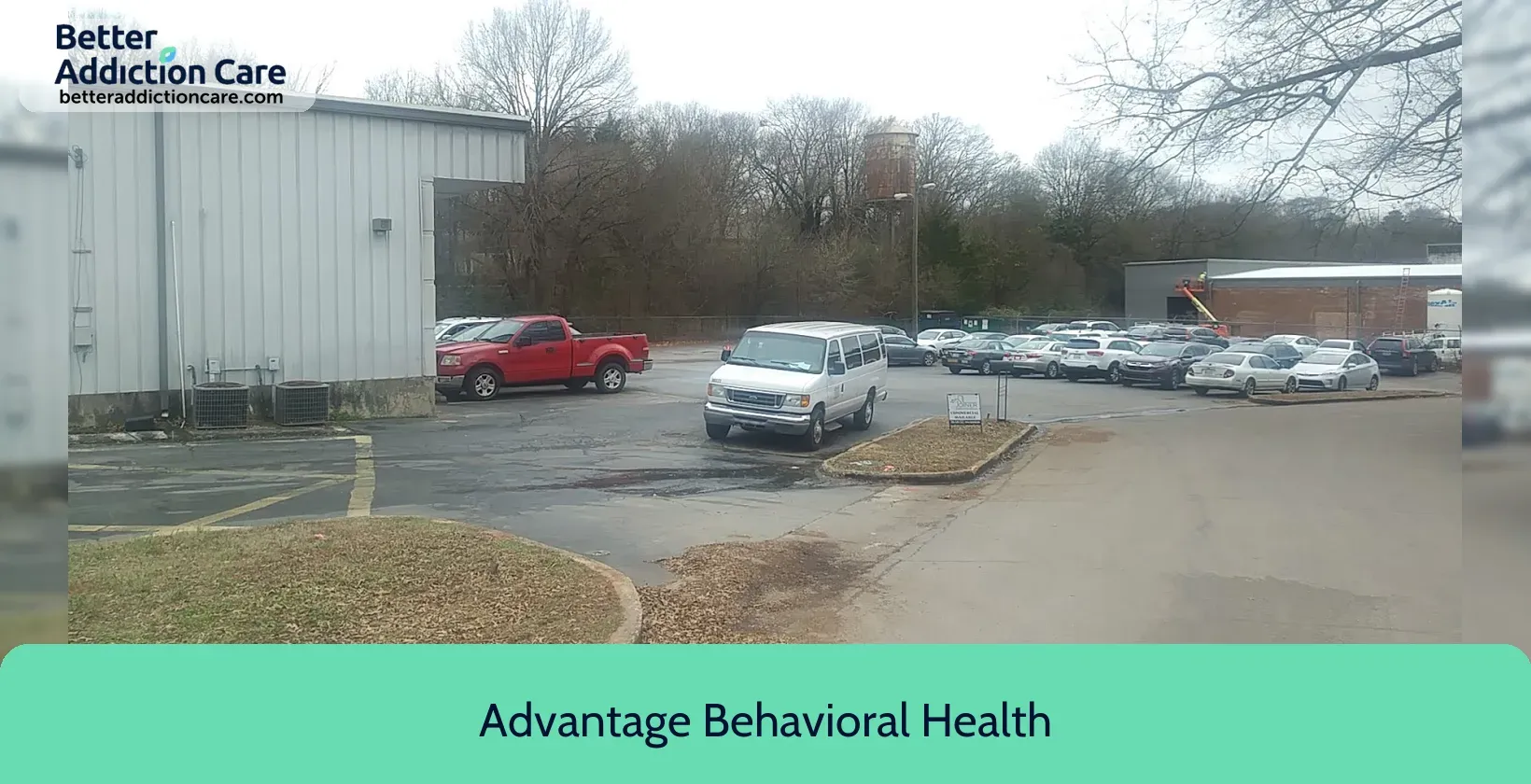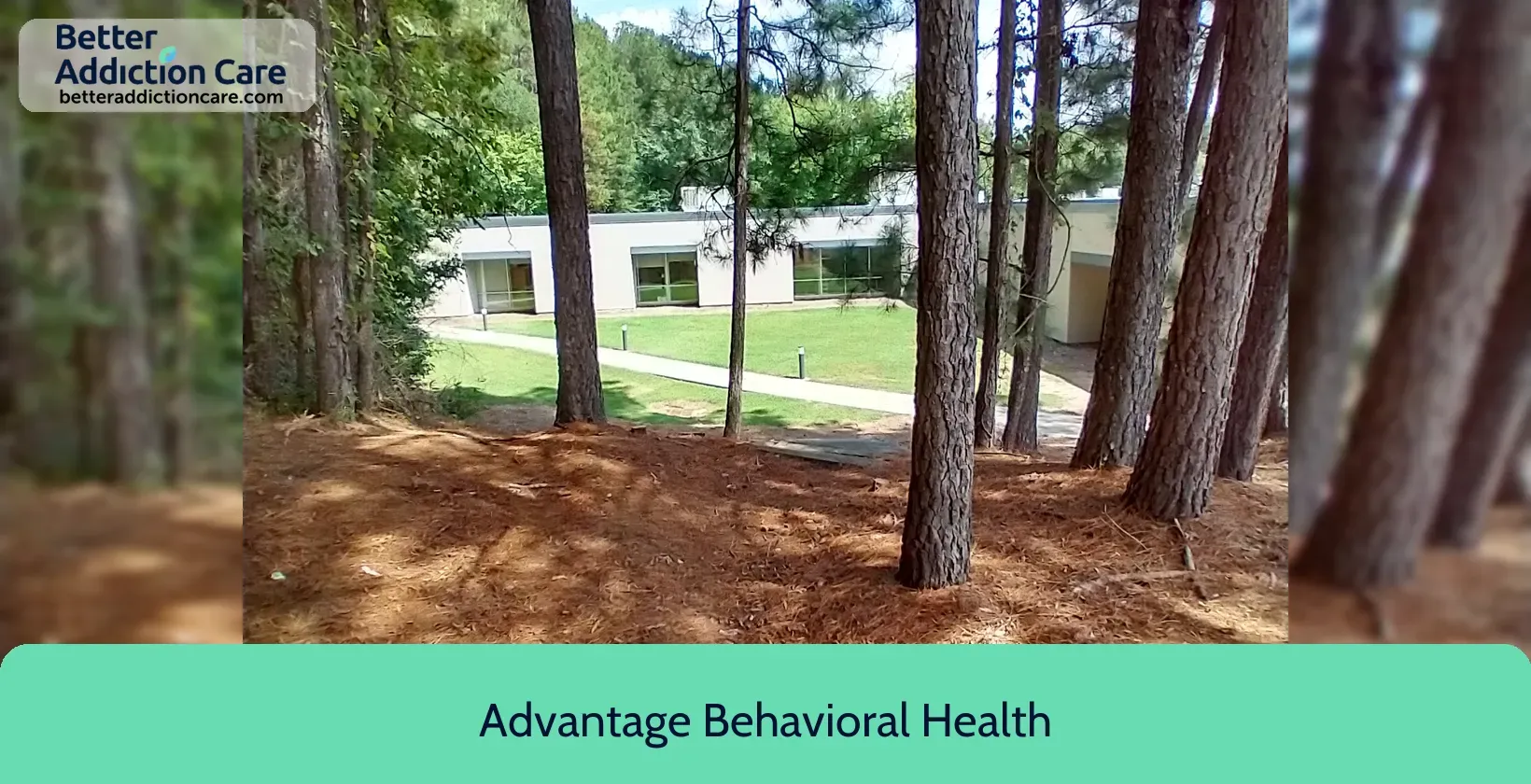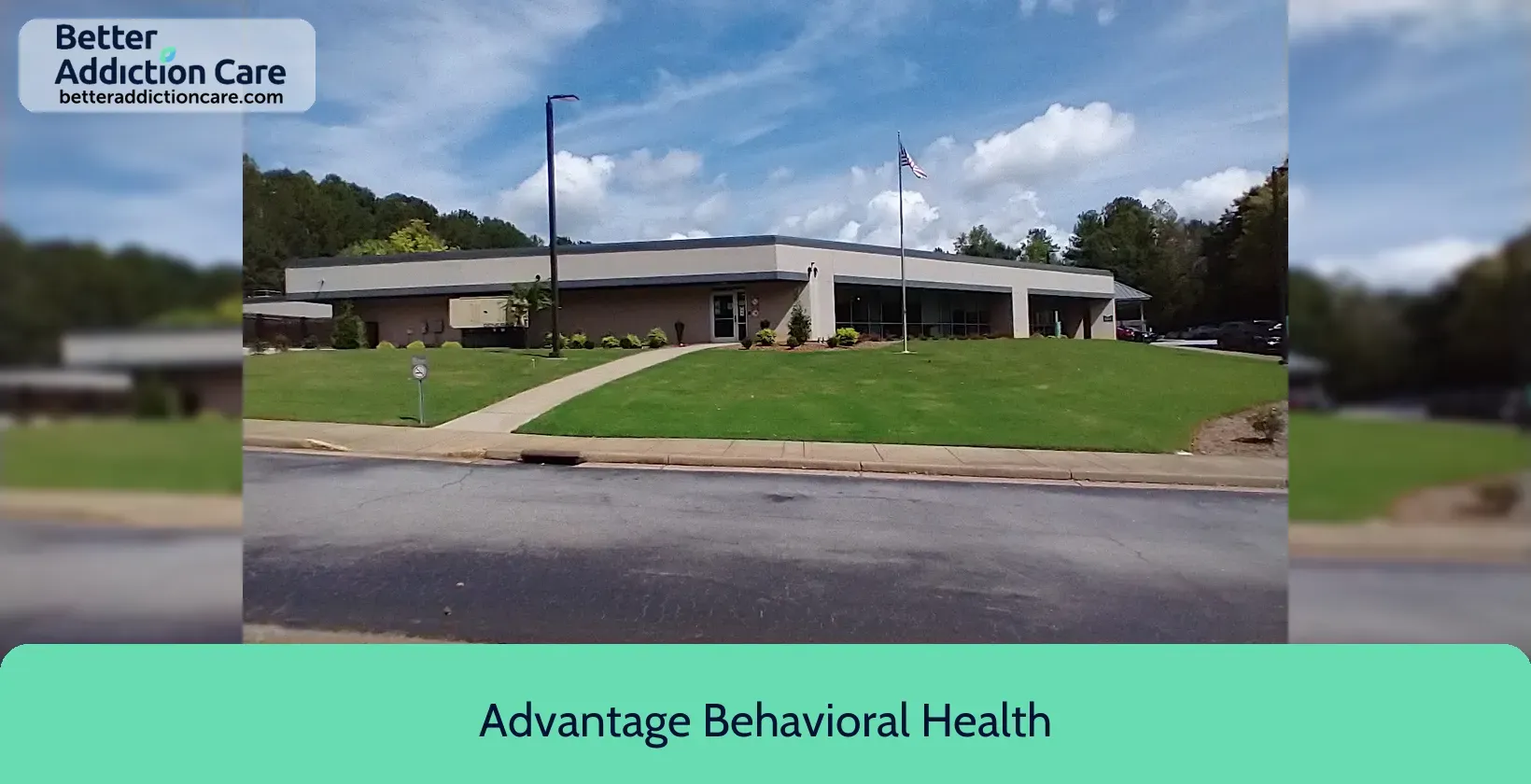Advantage Behavioral Health
Overview
Advantage Behavioral Health is a mental health treatment center for people seeking treatment near Clarke County. As part of their treatment modalities for recovery, Advantage Behavioral Health provides couples/family therapy, group counseling, and cognitive behavioral therapy during treatment. Advantage Behavioral Health is located in Athens, Georgia, accepting cash or self-payment for treatment.
Advantage Behavioral Health at a Glance
Payment Options
- Cash or self-payment
- Medicaid
- Medicare
- State-financed health insurance plan other than Medicaid
- Private health insurance
Assessments
- Screening for tobacco use
- Comprehensive mental health assessment
- Comprehensive substance use assessment
Age Groups
- Young adults
- Children/adolescents
- Adults
- Seniors
Ancillary Services
- Assertive community treatment
- Case management service
- Chronic disease/illness management
- Court-ordered outpatient treatment
- Diet and exercise counseling
Highlights About Advantage Behavioral Health
6.71/10
With an overall rating of 6.71/10, this facility has following balanced range of services. Alcohol Rehabilitation: 8.00/10, Drug Rehab and Detox: 6.00/10, Insurance and Payments: 6.00/10, Treatment Options: 6.85/10.-
Alcohol Rehabilitation 8.00
-
Treatment Options 6.85
-
Drug Rehab and Detox 6.00
-
Insurance and Payments 6.00
Treatment At Advantage Behavioral Health
Treatment Conditions
- Mental health treatment
- Alcoholism
- Substance use treatment
- Co-occurring Disorders
Care Levels
- Hospital inpatient treatment
- Partial Hospitalization Program
- Outpatient
Treatment Modalities
- Couples/family therapy
- Group counseling
- Cognitive behavioral therapy
- Dialectical behavior therapy
- Integrated Mental and Substance Use Disorder treatment
Ancillary Services
Languages
- Sign language services for the deaf and hard of hearing
Additional Services
- Pharmacotherapies administered during treatment
- Mentoring/peer support
- HIV testing
Special Programs
- Clients with co-occurring mental and substance use disorders
- Veterans
- Criminal justice (other than DUI/DWI)/Forensic clients
- Clients who have experienced trauma
- Persons 18 and older with serious mental illness (SMI)
Get Help Now
Common Questions About Advantage Behavioral Health
Contact Information
Other Facilities in Athens

7.23

7.28

7.58

6.68
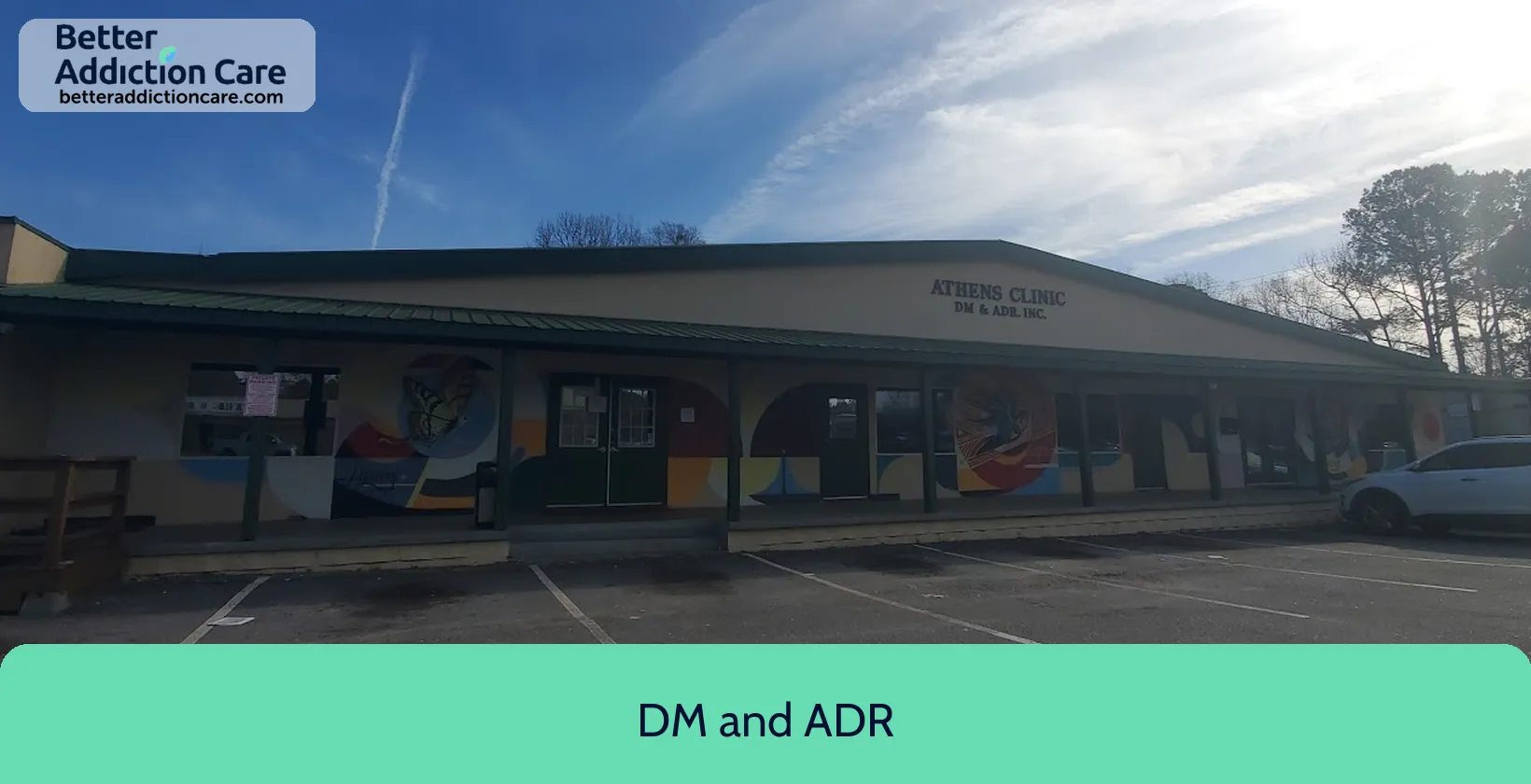
7.23
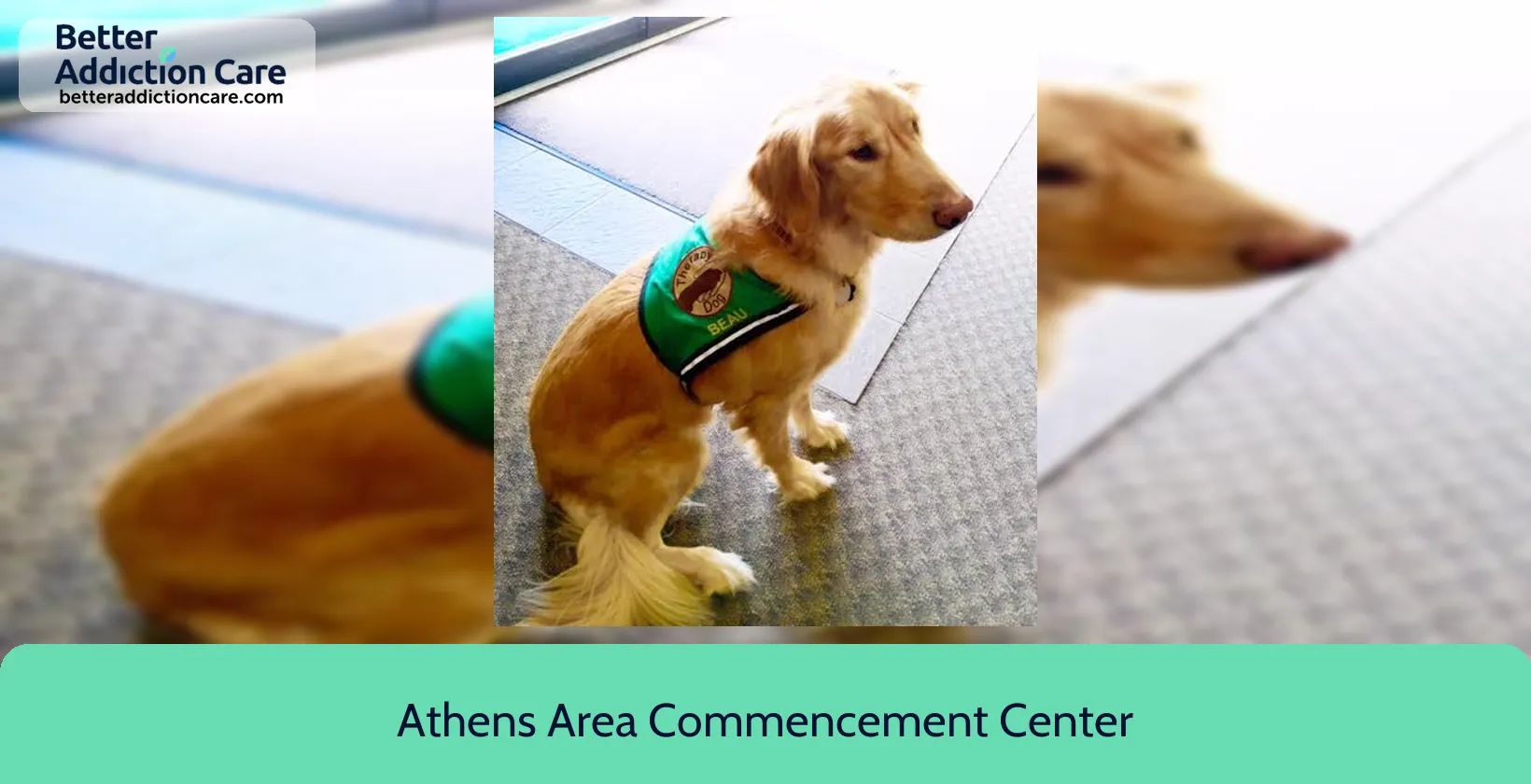
7.48

6.90
DISCLAIMER: The facility name, logo and brand are the property and registered trademarks of Twin Lakes Recovery Center, and are being used for identification and informational purposes only. Use of these names, logos and brands shall not imply endorsement. BetterAddictionCare.com is not affiliated with or sponsored by Twin Lakes Recovery Center.

